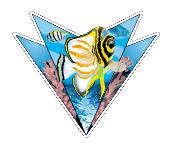 Hawaiians have always practiced a sustainable way of life. Please respect and have aloha for Hawaii and its people.
Hawaiians have always practiced a sustainable way of life. Please respect and have aloha for Hawaii and its people.
In 2007 & 2008 our surf school was nominated for the ‘LIVING REEF AWARD’ for the state of Hawaii, sponsored by the Department of Land and Natural Resources. Although honored, we believe the actions taken, to be recognized for this award, are only acts that should be practiced by all individuals living on the Islands.
Hawaii is composed of nearly 130 Islands, islets, and atolls, with 120,000 miles of ocean and reef. Hawaii is the most isolated landmass in the world and boasts the largest protected marine sanctuary in the U.S. Maui is the most protected and fragile marine ecosystem in Hawaii’s visited Islands. We have the ultimate responsibility of protecting our resources for future generations.
In order to achieve good stewardship all of our staff participates and has been C.O.R.A.L card certified. The C.O.R.A.L card is a certified course sponsored by NOAA, National Marine Sanctuaries, Marine Option Program, Maui Reef Fund, Hawaii’s Eco-nature Society, Hawaii’s wildlife Fund, The Coral Reef Alliance and Project S.E.A Link. Participants are trained and educated about the environment, culture and island stewardship.
Please take the time to read a few tips we would like to share with our visitors:
• Don’t walk on or touch the coral or submerges rocks where new coral could grow. Coral is a living animal; it is delicate and grows very slowly. It is actually illegal to damage coral in Hawaii. Remember, any type of impact kills the coral!
• Keep it clean! Litter diminishes quality of our eco-systems; litter becomes marine debris, which threatens marine species.
• If you smoke please take your butts with you, butts can seriously harm sea life if swallowed. Remember, on an Island everything eventually drains into the ocean if not properly disposed of.
• Do not feed fish! Feeding fish may disrupt natural behavior, causing dependence and habituation, and promotes aggression.
• Respect animal’s space. Don’t touch, inhibit, harass or “take” sea life. It is illegal to touch or ride the turtles. Legal approach limit for Whales or Monk Seals is 100 yards. The Hawaiian Spinner Dolphin may be the species seen most, they feed at night and need to rest during daylight hours – please don’t interrupt resting, this could make them more susceptible to predation.
• Take nothing living or nonliving out of the ocean.

